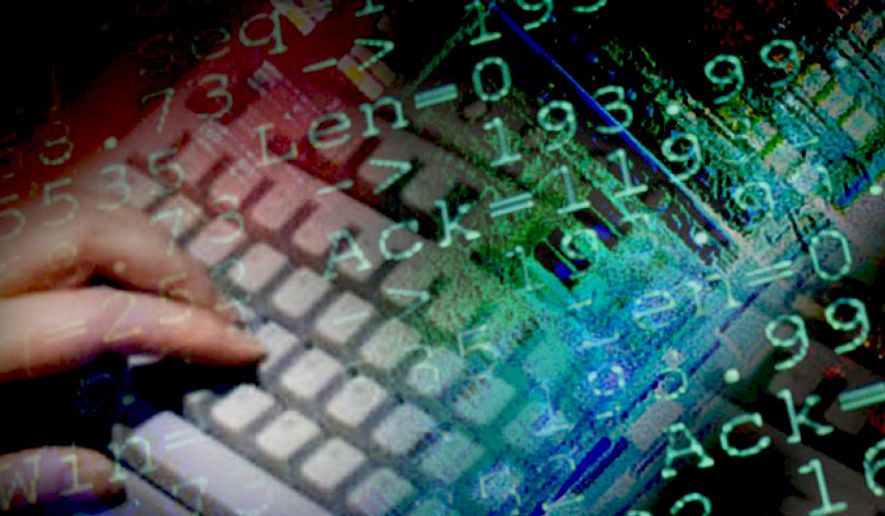Nima Golestaneh, one of the seven Iranians pardoned by the Obama administration this week as part of an agreement between Washington and Tehran, pleaded guilty to computer hacking in early December and was previously on an Interpol watch list.
Mr. Golestaneh, an Iranian national, was freed on Sunday along with six others as part of a prisoner swap that President Obama called a “one-time gesture” that guaranteed the release of four Americans that were incarcerated overseas; a fifth was released by Tehran through a separate arrangement.
All seven Iranians have opted to stay in the U.S. for the time being, American officials told CNN on Wednesday, but Mr. Golestahh — the only not to have dual-citizenship — has hardly been on American soil all that long anyway. He was extradited to the U.S. in February from Turkey to be tried on four felony counts of wire fraud and a single charge of computer fraud and conspiracy, and had reached a plea deal with federal prosecutors early last month.
Six weeks prior to his pardon being unexpectedly announced by the Obama administration, U.S. attorneys applauded the guilty plea as a testament to the Justice Department’s willingness to literally scour the Earth in search of hackers and prove that cyberattacks waged against American targets will warrant a response, no matter the origin.
“This case illustrates that no part of the United States is immune from cyber intrusions,” Eric Miller, a federal prosecutor for the district of Vermont, said in Dec. 2 statement. “Further, as the department has shown time and again, cyber criminals are not immune from the law because they hack from faraway countries that they perceive as offering a safe haven. Working with our colleagues at FBI and other law enforcement agencies, we can and will identify them and we will make every effort to arrest and prosecute them.”
“Those who have committed or are committing similar computer intrusions are on notice,” added FBI Special Agent in Charge Andrew Vale, who also participated in the Golestaneh investigation alongside members of the Justice Department’s National Security Division and the Office of International Affairs. “We can identify them and we will pursue their arrest no matter where they reside or how long it takes.”
SEE ALSO: U.S. military can now pursue Islamic State in Afghanistan
In his plea deal, Mr. Golestaneh admitted to being involved in a hacking scheme that targeted Arrow Tech, a Vermont-based aerodynamics company and U.S. defense contractor in October 2012. Prosecutors said he conspired with others to hack the firm’s computers in order to steal company software and business information, and personally had facilitated the attack by providing his partners with foreign servers used to accomplish the intrusions.
In response to the cyberattack, the FBI asked Interpol, the international law enforcement group, to be on the lookout for Mr. Golestaneh for purposes of extradition. He was arrested in Turkey in November 2013 in connection with the American charges, and was taken 15 months later to the U.S. pursuant to a Mutual Legal Assistance Treaty.
Iranian hackers have repeatedly been blamed for cyberattacks against American targets by U.S. officials in recent years, including a 2014 operations that targeted a chain of casinos and a 2013 attack against a New York hydroelectric dam revealed just last month. Director of Intelligence James Clapper last year blamed Iran for “destructive attacks” that are waged by “motivated and unpredictable cyber actors” who conduct hard-to-counter campaigns waged more sporadically that the efforts of major state-sponsored groups like those in China and Russia. Unlike government networks guarded by federal cyber experts, however, leaving private sector victims especially prone to these attacks.
“A private company that has internet-connected computers cannot keep a dedicated nation state out of its systems,” John Carlin, the assistant attorney general for the Justice Department’s national security division, said previously, so the government must do “everything we can to increase the costs for the bad guy so that they know there is going to be a consequence.”
Major General Uzi Moskovitz, the head of the Israeli defense forces’ cyber command, said in an interview this week that he fears Iranian hackers will up the ante in the coming months after putting a pause on operations in the midst of nuclear talks with the U.S. and its allies.
“In 2015, all the actors were trying to behave well, be good boys, because the global political system was very concentrated on the efforts to reach an arrangement regarding the Iranian issue,” he told Financial Times. “So the Iranians had no incentive to impose attack waves on the US banking system [or] to impose any attacks on oil and natural gas companies in the Gulf, as they did in 2012.”
SEE ALSO: Lawmakers float new commission to solve government’s ‘going dark’ encryption dilemma
• Andrew Blake can be reached at ablake@washingtontimes.com.




Please read our comment policy before commenting.